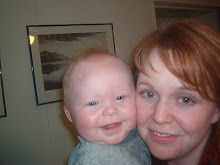Our study of Functional Behavior Analysis this week really made sense to me and helped me add some new theories to my beliefs about learning. I really grasped on to the idea that we must find the cause of the breakdown in behavior or the breakdown in learning. Once we find the cause for this breakdown, we can try to remedy this problem and THEN reward students for the positive things that they do. This idea really spoke to me because I think that there are so many reasons learning can break down or behavior can break down. If we find the cause and fix it, deeper learning takes place. I really thought that Skinner's ideas last week were good, but I couldn't help feeling that it was like putting a Band Aid on the problem. If we reward students during one class for their learning, how likely are they to carry that over to the next class. On the other hand, if we find the very place that learning is breaking down, I think that correction is more likely to make a permenant impact on students.
Teachers can effectuate learning by getting to the root of the problem or the breakdown. Sometimes this is a quick process and can be taken care of in a few seconds. For example, every year I teach my 9th grade students about using strong verbs in writing. Every year I have a few students who don't know how to identify a verb. I take a few seconds and explain the definition of a verb and then these students are ready to go (until next year in 10th grade when they tell their teacher that they don't know what a verb is :). Sometimes getting to the root of the problem takes a longer process. Right now my department is working on making common assessments at each grade level. We are designing 4 common assessments to give to the students throughout the school year. We have teaching objectives for each quarter and throughout the year, we test the students to see if they have learned what we are trying to teach. This process is long, but I think it will be worth it in the end. So to make this long blog entry even longer, I think that teachers can effectuate learning by constantly evaluating students. This can be a formal common assessment or it may just be trying to fix the blank looks that we get from students during a lesson. I think that this type of learning will last a lot longer than exclusive reinforcement.
Subscribe to:
Post Comments (Atom)

Mrs. Hall, I like your comparison of short-term changes within the realm of behaviourism and the implications of longer term change utilizing FBA. I believe one of the challenges we will face this semester, in this course, is the changing "Oh, I totally buy into that . . . oh, no - wait, I totally buy into that . . . oh, no - wait, etc. . . " mentality every week.
ReplyDeleteWhen I did my undergrad, I took abnormal psych (psych minor) and that was the norm from week to week. Each student would question their own mental state each time a new section of the DSM was covered. ;)
Good writing.
Ciao
I completely agree with your comment about Skinner's perspective acting as a band aid, without analyzing or fixing the root problem. Furthermore, though learning can still occur without it, a teacher that recognizes a root problem and works through it with the student, will see exponentially greater results. Much better for the student that way, though certainly an investment of time and sincere concern on behalf of the teacher.
ReplyDeleteAmy,
ReplyDeleteGreat post. And don't worry about it being long. It's always great to read thoughts in depth.
As for comments, I agree with you concerning breakdown. Trying to find the points in the process that fail to affect the student is a noble goal. And challenging.
But what if those points aren't in the educational system but behaviors that are reinforced at home or in the student's daily interactions? How do we as educators reform those values? Because behaviors can be values, right? If a student behaves a certain way, they may have a deep value set that is influencing his or her behavior.
It's incredibly challenging...especially trying to pull parents and other role models in the student's life.